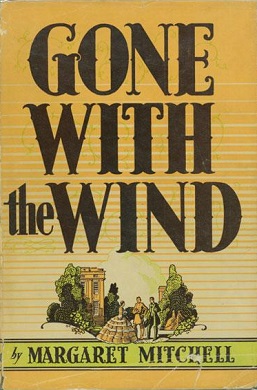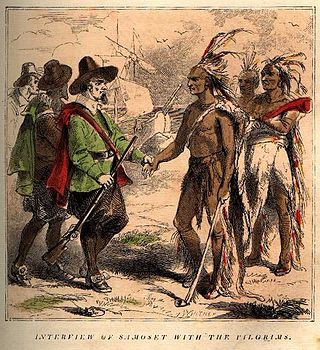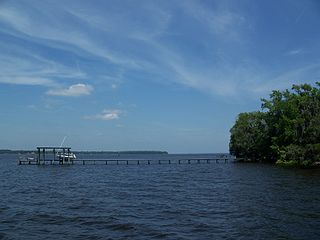Plot
Set against the exotic background of the Bahama Islands, it's the saga of wealthy, aristocratic families from the Carolinas, Georgia, and Virginia who, following the American Revolution, fled the South for the Bahamas, where they remained loyal to England. Abandoning their plantations for the islands, they established new dynasties in the Bahamas, where the Crown rewarded their loyalty with huge grants of land.
"Wind from the Carolinas is fiction and as such certain liberties have been taken but not with the basic facts. Certainly, the settlement of the Bahama Islands was the result of one of the most dramatic of migrations. From the plantation aristocracy of Carolina, Virginia and Georgia came families who were passionately sincere in their loyalty to the British Crown and wanted nothing to do with the American Revolution and its theory of democracy. At the close of the War for Independence they found life all but unendurable. They were hated and reviled as Tories by what they considered to be a disorganized rabble. They were subjected to taunts and violence. At their request transports of the Royal Navy took entire families, their slaves, livestock, furnishings, and in some cases, even the bricks of their manors to the Bahamas. There they attempted to recreate the Colonial magnificence they had known with mansions, slave quarters and vast cotton fields. The failure was tragic and the history of the Out Islands has been one of wealth and poverty in cycles brought about by influences far beyond their shores." - Robert Wilder, Author

The Bahamas, officially the Commonwealth of The Bahamas, is an island country within the Lucayan Archipelago of the Atlantic Ocean. It contains 97% of the Lucayan Archipelago's land area and 88% of its population. The archipelagic country consists of more than 3,000 islands, cays, and islets in the Atlantic Ocean, and is located north of Cuba and northwest of the island of Hispaniola and the Turks and Caicos Islands, southeast of the U.S. state of Florida, and east of the Florida Keys. The capital is Nassau on the island of New Providence. The Royal Bahamas Defence Force describes The Bahamas' territory as encompassing 470,000 km2 (180,000 sq mi) of ocean space.

Gone with the Wind is a novel by American writer Margaret Mitchell, first published in 1936. The story is set in Clayton County and Atlanta, both in Georgia, during the American Civil War and Reconstruction Era. It depicts the struggles of young Scarlett O'Hara, the spoiled daughter of a well-to-do plantation owner, who must use every means at her disposal to claw her way out of poverty following Sherman's destructive "March to the Sea." This historical novel features a coming-of-age story, with the title taken from the poem "Non Sum Qualis eram Bonae Sub Regno Cynarae", written by Ernest Dowson.

The Thirteen Colonies were a group of British colonies on the Atlantic coast of North America during the 17th and 18th centuries. Grievances against the imperial government led the 13 colonies to begin uniting in 1774, and expelling British officials by 1775. Assembled at the Second Continental Congress in Philadelphia, they appointed George Washington as commander-in-chief of the Continental Army to fight the American Revolutionary War. In 1776, Congress adopted the Declaration of Independence as the United States of America. Defeating British armies with French help, the Thirteen Colonies gained sovereignty with the Treaty of Paris in 1783.

The earliest arrival of people in the islands now known as The Bahamas was in the first millennium AD. The first inhabitants of the islands were the Lucayans, an Arawakan language-speaking Taino people, who arrived between about 500 and 800 AD from other islands of the Caribbean.
This section of the timeline of United States history concerns events from before the lead up to the American Revolution.

The colonial history of the United States covers the period of European colonization of North America from the early 16th century until the incorporation of the Thirteen Colonies into the United States in 1776 during the Revolutionary War. In the late 16th century, England, France, Spain, and the Dutch Republic launched major colonization expeditions in North America. The death rate was very high among early immigrants, and some early attempts disappeared altogether, such as the English Lost Colony of Roanoke. Nevertheless, successful colonies were established within several decades.

Pierce Butler was an Irish-born American politician who was one of the Founding Fathers of the United States. Born in the Kingdom of Ireland, Butler emigrated to the British North American colonies, where he fought in the American Revolutionary War. After the war, he served as a state legislator and was a member of the Congress of the Confederation. In 1787, he served as a delegate to the 1787 Constitutional Convention, where Butler signed the Constitution of the United States; he was also a member of the United States Senate.

Andros Island is an archipelago within The Bahamas, the largest of the Bahamian Islands. Politically considered a single island, Andros in total has an area greater than all the other 700 Bahamian islands combined. The land area of Andros consists of hundreds of small islets and cays connected by mangrove estuaries and tidal swamplands, together with three major islands: North Andros, Mangrove Cay, and South Andros. The three main islands are separated by bights, estuaries that trifurcate the island from east to west. It is 167 kilometres (104 mi) long by 64 km (40 mi) wide at the widest point.

In the context of the history of slavery in the Americas, free people of color were primarily people of mixed African, European, and Native American descent who were not enslaved. However, the term also applied to people born free who were primarily of black African descent with little mixture. They were a distinct group of free people of color in the French colonies, including Louisiana and in settlements on Caribbean islands, such as Saint-Domingue (Haiti), St. Lucia, Dominica, Guadeloupe, and Martinique. In these territories and major cities, particularly New Orleans, and those cities held by the Spanish, a substantial third class of primarily mixed-race, free people developed. These colonial societies classified mixed-race people in a variety of ways, generally related to visible features and to the proportion of African ancestry. Racial classifications were numerous in Latin America.

The Abaco Islands lie in the north of The Bahamas, about 193 miles east of Miami, Florida. The main islands are Great Abaco and Little Abaco, which is just west of Great Abaco's northern tip. There are several smaller barrier cays, of which the northernmost are Walker's Cay and its sister island Grand Cay. To the south, the next inhabited islands are Spanish Cay and Green Turtle Cay, with its settlement of New Plymouth, Great Guana Cay, private Scotland Cay, Man-O-War Cay, and Elbow Cay, with its settlement of Hope Town. Southernmost are Tilloo Cay and Lubbers Quarters. Also of note off Abaco's western shore is Gorda Cay, now a Disney-owned island and cruise ship stop renamed Castaway Cay. Also in the vicinity is Moore's Island. On the Big Island of Abaco is Marsh Harbour, the Abacos' commercial hub and The Bahamas' third-largest city, plus the resort area of Treasure Cay. Both have airports. A few mainland settlements of significance are Coopers Town and Fox Town in the north and Cherokee and Sandy Point in the south. Administratively, the Abaco Islands constitute seven of the 31 Local Government Districts of The Bahamas: Grand Cay, North Abaco, Green Turtle Cay, Central Abaco, South Abaco, Moore's Island, and Hope Town.

Loyalists were colonists in the Thirteen Colonies who remained loyal to the British Crown during the American Revolutionary War, often referred to as Tories, Royalists, or King's Men at the time. They were opposed by the Patriots, who supported the revolution, and considered them "persons inimical to the liberties of America."

Southern United States literature consists of American literature written about the Southern United States or by writers from the region. Literature written about the American South first began during the colonial era, and developed significantly during and after the period of slavery in the United States. Traditional historiography of Southern United States literature emphasized a unifying history of the region; the significance of family in the South's culture, a sense of community and the role of the individual, justice, the dominance of Christianity and the positive and negative impacts of religion, racial tensions, social class and the usage of local dialects. However, in recent decades, the scholarship of the New Southern Studies has decentralized these conventional tropes in favor of a more geographically, politically, and ideologically expansive "South" or "Souths".

The Out Islands are the islands that make up the Bahamas with the exception of New Providence Island, where the capital and largest city, Nassau, is located, and Grand Bahama Island, where Freeport is located. The Abaco Islands and Eleuthera islands are among the Out Islands.

The Eleutheran Adventurers were a group of English Puritans and religious Independents who left Bermuda to settle on the island of Eleuthera in The Bahamas in the late 1640s. The small group of Puritan settlers, led by William Sayle, were expelled from Bermuda for their failure to swear allegiance to the Crown and left in search of a place in which they could freely practice their faith. This group represented the first concerted European effort to colonize the Bahamas.

The colonial period of South Carolina saw the exploration and colonization of the region by European colonists during the early modern period, eventually resulting in the establishment of the Province of Carolina by English settlers in 1663, which was then divided to create the Province of South Carolina in 1710. European settlement in the region of modern-day South Carolina began on a large scale after 1651, when frontiersmen from the English colony of Virginia began to settle in the northern half of the region, while the southern half saw the immigration of plantation owners from Barbados, who established slave plantations which cultivated cash crops such as tobacco, cotton, rice and indigo.
Man-O-War Cay is a small island in the Abaco region of the Bahamas. It had a population of 215 at the 2010 census.
Thomas "Burnfoot" Brown was a British Loyalist during the American Revolution. Intending to become a quiet colonial landowner, he lived, instead, a turbulent and combative career. During the American Revolutionary War he played a key role for the Loyalist cause in the Province of Georgia as a Lt. Col in the King's Carolina Rangers. Following the overthrow of British rule and the Patriot victory in the Revolution, Brown was exiled first to British East Florida, and later to St. Vincent's Island in the Caribbean.

Francis Levett was an English trader, who worked as factor at Livorno, Italy, for the Levant Company until he lit out for East Florida in 1769 where his brother-in-law Patrick Tonyn of the British Army had been appointed governor of the English colony. Wielding connections from a lifetime of overseas trading, as well as family connections from a powerful English mercantile family, Levett built one of the first plantations in Florida, and then forfeited his investment when the English lost their foothold in Florida, forcing him to flee to the British colony in the Bahamas. Eventually his son returned to Georgia, where he became the first to plant Sea Island cotton in America.
Afro-Bahamians are an ethnicity originating in The Bahamas of predominantly or partial native African descent. They are descendants of various African ethnic groups, many associated with the Bight of Biafra, kingdoms, the Oyo Empire, and the Kingdom of Kongo. According to the 2010 census, 92.7% of The Bahamas' population identifies as mixed African descent.

Plantation complexes were common on agricultural plantations in the Southern United States from the 17th into the 20th century. The complex included everything from the main residence down to the pens for livestock. Until the abolition of slavery, such plantations were generally self-sufficient settlements that relied on the forced labor of enslaved people.















